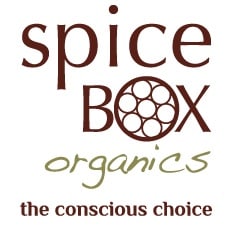Blog
Coconuts – The Healthiest Fruit of them All?
It is no surprise that the coconut tree is considered by many to be the most useful tree in the world. Every part of this ‘tree of life’ has a purpose and use from the trunk to the fronds. A coconut tree not only provides nourishment through the nuts, but also provides enormous health benefits to those who consume its water and fruit.
By-Products of Coconut
The coconut fruit is not the only part of the tree that is useful. Its leaves are used in thatching roofs and are efficient broomsticks. The trunk of the tree is good for coconut lumber, an inexpensive raw material for building houses, floors or furniture. Even the bark and roots of the coconut have uses and have been studied for their strength properties useful for composite applications. The husks and shells of the nut can also be utilized as charcoal or as a substitute for wood. Hence, from roots to leaves, every part of the coconut is useful to the human population.
Health Benefits
Consuming Coconut Water May Lower Blood Pressure and Is Effective For Oral Rehydration
Perhaps, the most popular uses of the coconut fruit lie in the realm of health. Coconut water is touted as a miracle worker that is good for general health. It is a powerful antioxidant and has high levels of vitamin C. It has less sodium and more potassium and other nutrients (Vigliar et al, 2006). A study by Alleyne et al suggests that it might help in lowering blood pressure. Another research trial by Ismail et al indicates that coconut water is good for rehydration after vigorous exercise. A follow-up study took place, but this time, sodium was added to the coconut water. It showed that coconut water is sufficient in oral rehydration. Nowadays, there are several products that make coconut water an interesting beverage from flavored to non-flavored drinks.
Coconut Oil Boosts Good Cholesterol, While Moisturizing & Protecting Skin
Coconut oil is rich in saturated fats at almost 90% compared to the 64% found in butter or 40% in beef. Its redeeming quality is that coconut oil contains medium chain triglycerides (MCTs) which boosts HDL (good cholesterol) to compensate for LDL (bad cholesterol). In addition, there are different types of coconut oil that can be used for various purposes from cooking to skin care. Coconut oil when used on the hair protects it from damage, moisturizes skin and acts as a sunscreen (Agero et al, 2004).
Eating Coconuts Helps in Losing Weight
Coconuts also help you lose weight because they give the sensation of being full. In a study, it was revealed that men who ate food with MCTs consumed 256 fewer calories. A similar study showed that respondents who ate lots of MCTs such as foods with coconut oil at breakfast ate less at lunch time (Wymelbeke et al, 1998).
By Jenny Holt, Freelance Writer

